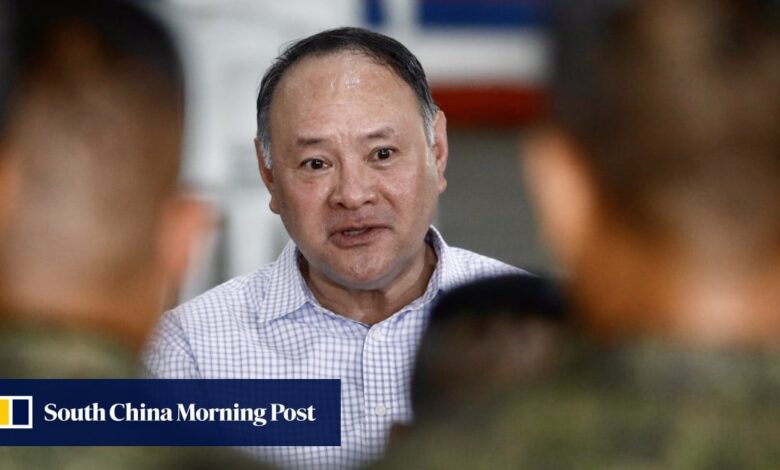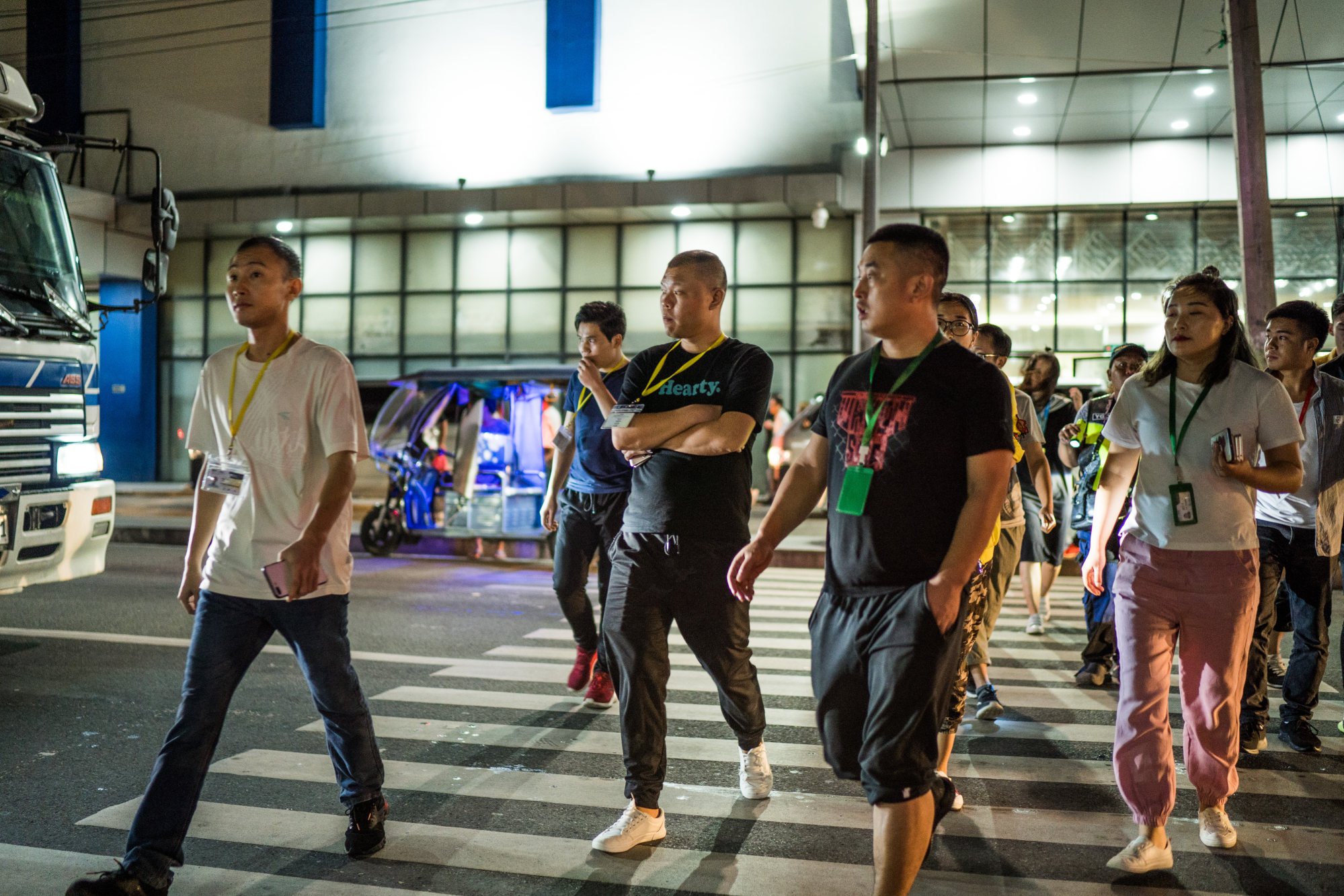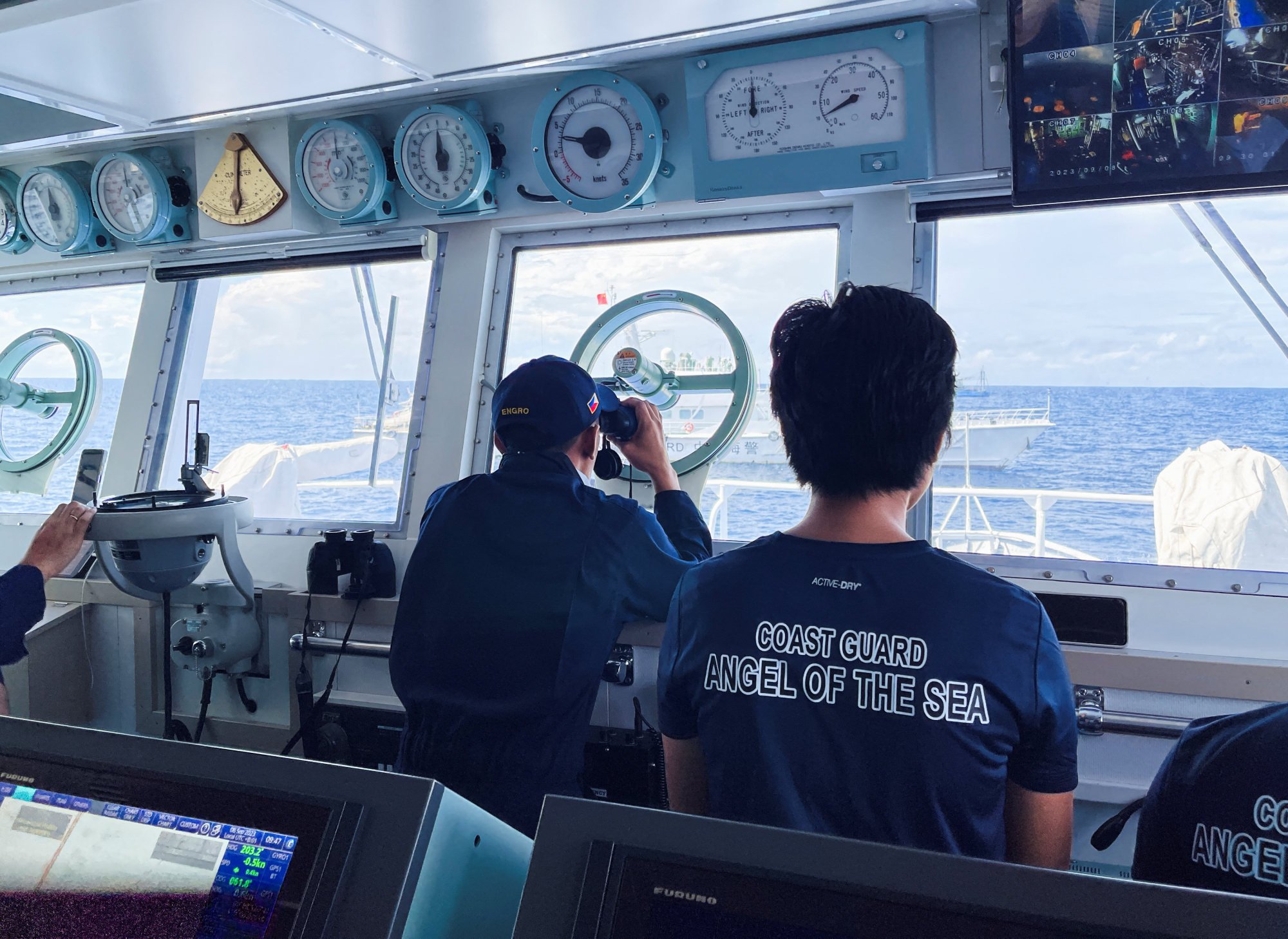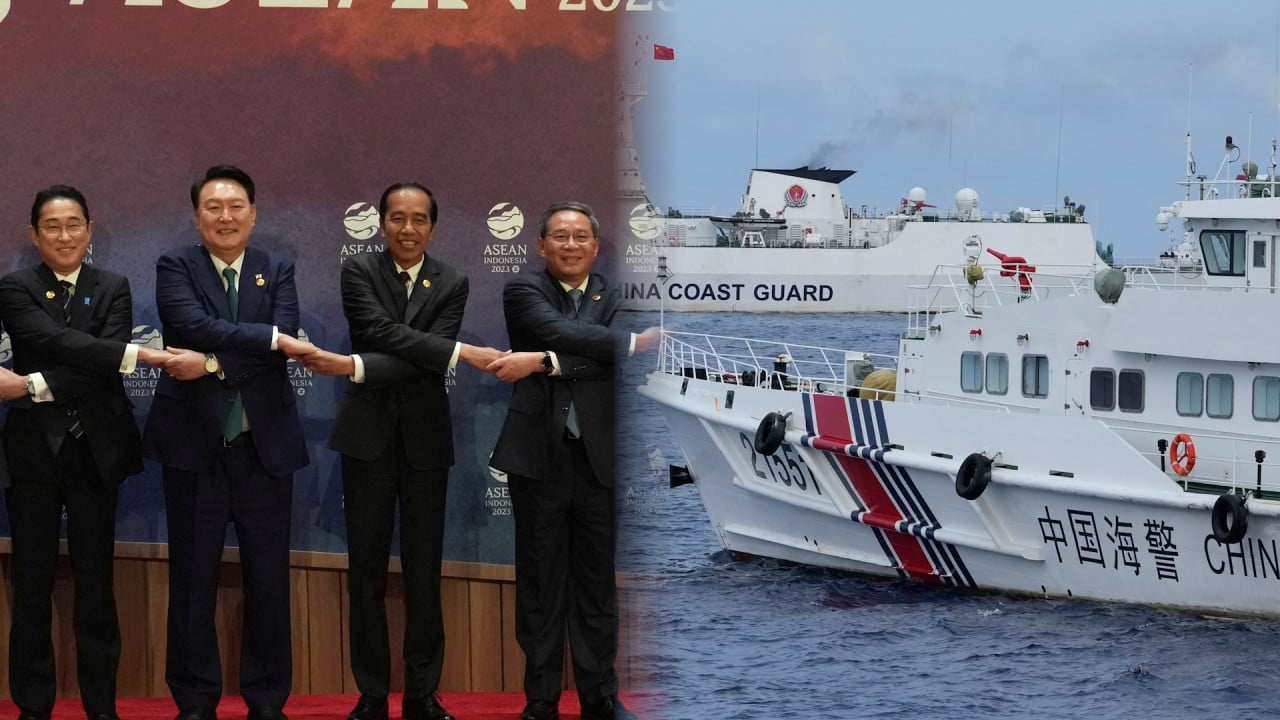South China Sea: Philippines keeps eye on Chinese workers over potential ‘covert activities’

[ad_1]
Teodoro’s remarks came after a senior coastguard official this week accused China of funding a misinformation campaign justifying its presence in Manila’s exclusive economic zone in the resource-rich waterway.
Teodoro acknowledged that the military and the Department of National Defence were aware of the “fusion of external threats through internal activities” and security agencies were working to dig deeper into the issue, the Philippine Daily Inquirer reported.
“The best way to weaken a country, rather than an overt warlike function or disruption of your facilities, is really to take control of [its] internal economy, internal processes and the like,” he said.
The government last month suspended all 22 Chinese-backed reclamation projects in Manila Bay to assess their environmental impact.
The decision came after the United States voiced concern over the role of a blacklisted Chinese firm in the coastal development work.
Teodoro also said locals were being deprived of job opportunities due to the presence of foreigners in the country.

Philippine Offshore Gaming operators (Pogos) were once a magnet for Chinese workers. The firms are based in the Philippines, but their customers are overseas.
The industry emerged in the country in 2016 and grew exponentially, as companies capitalised on Manila’s liberal gaming laws to target people in China, where gambling is banned.
At their peak, Pogos employed more than 300,000 Chinese workers, but the pandemic, higher taxes and enforcement actions have forced many to operate elsewhere.
Beijing has repeatedly warned Chinese nationals not to work in Pogos, which have brought a spate of crime, including kidnapping and murder.

The Philippines last year shut down dozens of Pogos and deported thousands of Chinese workers as part of a crackdown on the industry, which delivers 190 billion pesos (US$3.2 billion) to the economy each year.
On the continued tensions in the South China Sea, Teodoro defended Washington’s presence in the region and blamed Beijing’s “expansionist policy” for worsening the situation.
He said China had upped the ante with its new “10-dash line” map showing the Asian giant’s expanded claims in the South China Sea, sparking condemnation from multiple states.
Beijing claims sovereignty over almost all the South China Sea – where the Philippines and several other nations have competing claims – and has rejected a 2016 international ruling that found its assertions have no legal basis.

A senate panel said it was planning to release an updated Philippine map to counter China’s move.
Meanwhile, senior US and Philippine military officials on Wednesday inspected three proposed Enhanced Defence Cooperation Agreement (EDCA) sites in the country.
Such sites allow the US to bring in troops for prolonged stays and build and operate facilities.
Under a deal signed in 2014, Manila in April gave the US access to four additional locations near the Taiwan Strait and the South China Sea, bringing the number of military installations Washington can use in the archipelago to nine.
China has said the pact is “stoking the fire” of regional tension.
[ad_2]
Source link





